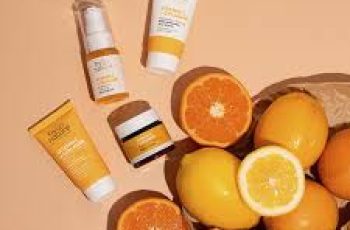
Antioxidant Ingredients Dictionary for Skin Care
Antioxidants are essential for healthy, youthful-looking skin. This guide will help you understand how they work, which to choose, and which products are best for your skin type.
What Do Antioxidants Do?
Antioxidants protect your skin from damage caused by free radicals. These unstable molecules are formed by pollution, UV rays, and stress. They can break down skin cells and accelerate aging.
Free radicals attack healthy skin cells and disrupt their normal function. Antioxidants neutralize these harmful molecules before they can cause damage.
The skin naturally has some antioxidants, but they’re not enough. This is why applying them directly through skincare is key to achieving results.
Why You Need Topical Antioxidants
Eating antioxidant-rich foods is great, but most of those nutrients never reach your skin. That’s why topical antioxidant creams and serums are so important.
Topical antioxidants deliver protection where it’s needed most—your skin’s surface and deep layers. They defend your skin against aging, pigmentation, and inflammation.
Some antioxidants are more powerful than others. Your skin type and specific concerns will determine the best ones for you.
How Antioxidants Work in Skin Care
Antioxidants donate electrons to free radicals to stop their destructive chain reaction. Once an antioxidant gives away its electron, it can no longer function until it’s replenished.
This is why your skin needs multiple types of antioxidants. Some get used up quickly. Others work better in combination to support each other.
Vitamin C, for example, can help recycle Vitamin E, making them stronger together. These “network antioxidants” are the secret to healthy skin.
Types of Antioxidants in Skin Care
There are two major types of antioxidants in skincare:
Water-soluble antioxidants: Found in serums and toners. They work in the watery parts of skin cells. Examples: Vitamin C, Glutathione, Green Tea.
Fat-soluble antioxidants: Found in oils and creams. They protect the fatty areas of skin cells. Examples: Vitamin E, CoQ10, Carotenoids.
Some, like Alpha-Lipoic Acid, are both water- and fat-soluble. That makes them especially effective in skincare routines.
Benefits of Antioxidants in Skin Care
Antioxidants offer a wide range of skin benefits. Here are just a few:
Prevent wrinkles by protecting collagen and elastin.
Reduce inflammation, redness, and irritation.
Lighten dark spots and help even out skin tone.
Repair sun damage and protect against future UV exposure.
Improve the skin barrier, keeping moisture in and pollutants out.
Bonus Antioxidants With Extra Skin Benefits
Some antioxidants do more than just neutralize free radicals:
Coenzyme Q10: Boosts skin cell energy.
Green Tea: Soothes inflammation and calms redness.
Vitamin C: Boosts collagen production for firmer skin.
Saururus Chinensis: Stops collagen breakdown.
Crepidiastrum Denticulatum: Protects skin from pollution.
Antioxidants for Skin Conditions
Acne
Acne causes inflammation, which generates free radicals. These lead to even more irritation and breakouts. Antioxidants help calm the skin and fight bacteria.
Vitamin C, niacinamide, and green tea are great for acne-prone skin. They soothe inflammation and protect the skin from future damage.
Rosacea
Rosacea is often linked to oxidative stress. Antioxidants help reduce this stress and minimize redness.
Top antioxidants for rosacea include green tea, resveratrol, niacinamide, and silymarin. These calm inflammation and support the skin barrier.
Melasma & Pigmentation
Vitamin C is the top antioxidant for brightening skin and fading dark spots. Licorice root and niacinamide also help with pigmentation.
Some antioxidants block tyrosinase, the enzyme responsible for melanin production. This helps lighten existing spots and prevent new ones.
Aging Skin
Antioxidants can prevent signs of aging caused by UV rays and pollution. They reduce the breakdown of collagen and elastin, keeping skin firm and smooth.
Vitamin C, resveratrol, and green tea are highly effective anti-aging antioxidants. Use them daily to maintain youthful skin.
Natural Antioxidants in Your Skin
Your body produces its own antioxidants, such as:
Glutathione, Vitamin C (ascorbic acid), Vitamin E (alpha-tocopherol), Superoxide Dismutase, Ubiquinone (Coenzyme Q10)
However, their levels decrease with age and environmental stress. That’s why you need extra antioxidant support through skincare.
Interestingly, oily skin produces more antioxidants in the sebum. This is one reason oily skin tends to age more slowly than dry skin.
Best Antioxidant Serums
Apply serums in the morning or evening before moisturizer. Here are some dermatologist-approved options:
Revision Skincare C+ Correcting Complex 30%
ISDIN Flavo-C Ultraglican Ampules
Derma Made Antioxidant C Serum+
Photozyme C+E Ferulic Serum
ISDIN Melatonik® Restorative Serum
Choose your serum based on your skin type and concerns. Vitamin C serums are best for brightening. DNA-repair serums are great for aging.
Best Antioxidant Creams and Moisturizers
Use these as the final step in your routine or after serums. They hydrate the skin while delivering antioxidant benefits.
For Dry Skin:
Zerafite Wrinkle Defense Barrier Cream, Obagi Hydrate Gel Cream, PCA Skin HydraLuxe, ISDIN Age Contour, Jan Marini Hyla3D Cream
These creams are rich and soothing—perfect for dry or mature skin.
For Oily or Acne-Prone Skin:
Medature Gel Moisturizer, Jan Marini C-ESTA Face Cream, Revision Skincare Vitamin C Lotion 15%, Derma Made Antioxidant C Serum+
These are lightweight and non-comedogenic, great for acne-prone or oily skin.
Antioxidant Oils for Sensitive Skin
Facial oils with antioxidants help reduce irritation from conditions like:
Rosacea, Psoriasis, Eczema, Allergies
Oils with ingredients like Vitamin E and green tea soothe and restore the skin’s barrier. They’re ideal for people with stinging or reactive skin.
Sunscreens with Antioxidants
Daily sunscreen is essential. But choosing one with antioxidants gives you double protection.
Here are top-rated sunscreens with antioxidant benefits:
Revision Skincare Intellishade SPF 45
ISDIN Eryfotona Actinica SPF 50+
EltaMD UV Luminous SPF 41
MDSolarSciences Daily Perfecting Moisturizer SPF 30
La Roche-Posay Anthelios SPF 30
For additional defense, Heliocare oral supplements contain Polypodium Leucotomos, a plant-based antioxidant that helps reduce sun damage from within.
Top Antioxidant Ingredients in Skin Care
Here’s a list of common and powerful antioxidant ingredients:
Strong Antioxidants:
Vitamin C (Ascorbic Acid), Vitamin E (Alpha-Tocopherol), Glutathione, Coenzyme Q10 (Ubiquinone), Green Tea (EGCG), Resveratrol, Curcumin, Melatonin, Pomegranate, Alpha-Lipoic Acid
Medium-Strength Antioxidants:
Caffeine, Niacinamide, Grape Seed Extract, Silymarin, Licorice Root Extract, Artemisia Capillaris, Saururus Chinensis
Weaker Antioxidants:
Arbutin, Kojic Acid, Quercetin
Polyphenols and Flavonoids
Polyphenols are plant-based antioxidants found in fruits and vegetables. Flavonoids are a type of polyphenol with powerful protective effects.
They calm inflammation, protect from UV rays, and repair skin damage. Green tea, red wine, and berries are rich in polyphenols.
Are Retinoids Antioxidants?
Retinoids (like retinol) are great for skin, but they are not antioxidants. They work by increasing cell turnover and boosting collagen—not by neutralizing free radicals.
You can use antioxidants and retinoids together for best results.
How to Build Your Antioxidant Skincare Routine
The best antioxidant routine will include a mix of fat- and water-soluble ingredients. Look for stabilized formulas in air-tight packaging for best results.
Use this routine as a general guide:
Cleanser, Toner (optional), Antioxidant serum, Moisturizer with antioxidants, Sunscreen (AM only)
At night, you can pair antioxidants with ingredients like retinol or peptides for anti-aging benefits.
Final Thoughts
There’s no single “best” antioxidant. The best approach is to use a combination that works for your specific skin type and concerns.
If you’re unsure what to use, take the Baumann Skin Type Quiz. It will recommend the right antioxidant products tailored for your skin.
With a smart skincare routine and the right antioxidant-rich products, you can fight aging, protect your skin, and achieve a radiant glow.


